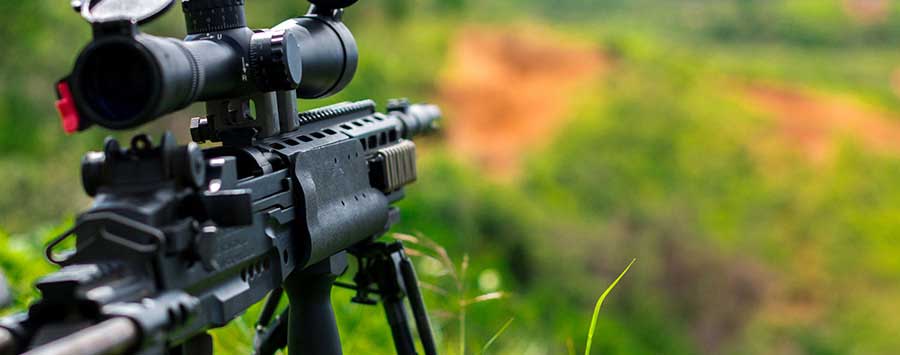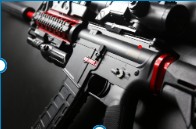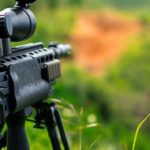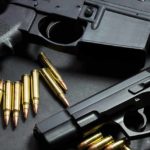Inside This Article
- How does a forced-reset trigger work in semi‑automatic firearms?
- What is the current legal status of forced-reset triggers under federal and state law?
- Why are defenders and attorneys challenging the ATF’s classification of forced-reset triggers?
Forced-Reset Triggers (FRTs): Mechanics, Legal Landscape, and Recent Developments
Many Michigan residents are concerned with the legality of Forced-Reset Triggers (FRTs). This blog addresses issues regarding FRTs and their legality in Michigan and the United States.
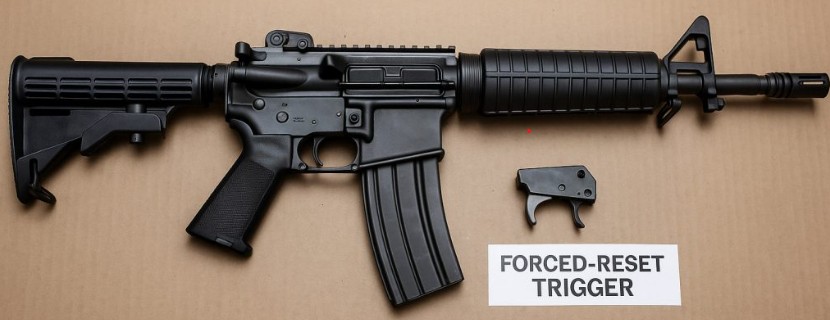
Introduction: Understanding Forced-Reset Triggers
Forced-reset triggers, often referred to as FRTs, have become a flashpoint in the ongoing debate over gun rights and firearm regulation. These devices enable rapid firing in semi-automatic rifles, raising legal and political questions across the country. Gun owners, manufacturers, and regulators continue to grapple with their use, design, and legality.
Mechanical Functionality of FRTs
An FRT works by using the bolt carrier’s rearward motion to push the trigger forward after a shot. This forced reset allows the shooter to fire again more quickly than with a traditional semi-automatic trigger. Despite the increased firing speed, each round still requires a separate pull of the trigger.
FRTs differ significantly from fully automatic weapons. In a machine gun, holding the trigger causes the weapon to continue firing until the shooter releases it or the ammunition runs out. An FRT still fires only one round per trigger pull. This distinction has remained central to the legal arguments surrounding the device.
Legal Classification and Regulatory History
The Bureau of Alcohol, Tobacco, Firearms, and Explosives (ATF) initially classified some FRT models as machine guns under the National Firearms Act. They argued that certain FRTs allowed functionally automatic firing and thus should fall under the same strict regulations as fully automatic weapons. This interpretation sparked nationwide controversy and prompted multiple lawsuits from FRT manufacturers and gun rights groups.
One of the central legal questions was whether the forced-reset mechanism causes a gun to fire more than one round per pull of the trigger. The ATF said yes, but the manufacturers and supporters of FRTs said no. This core disagreement led to extensive litigation and conflicting rulings from federal courts, including the U.S. District Courts in Michigan.
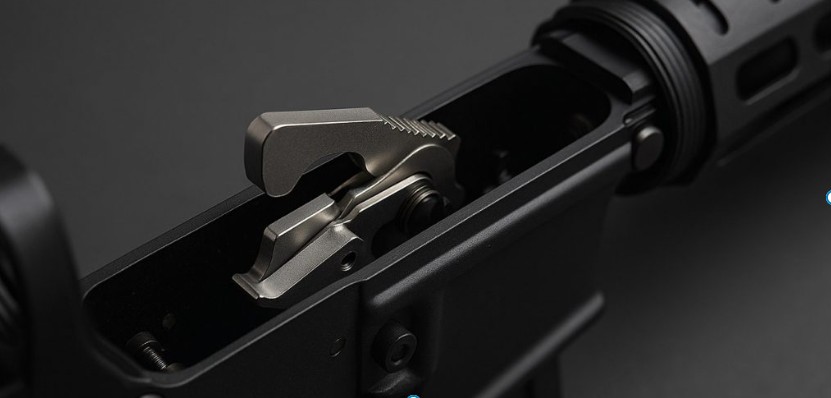
Major Legal Battles and Court Decisions
Rare Breed Triggers, one of the most prominent manufacturers of forced-reset triggers, pushed back hard against the ATF’s classification. The company filed lawsuits arguing that the ATF misinterpreted the law and overstepped its authority. They maintained that the FRT-15 does not convert a rifle into a machine gun and that their design remains within legal bounds.
In 2024, the U.S. District Court for the Northern District of Texas ruled in favor of FRT advocates. The court found that forced-reset triggers do not meet the legal definition of a machine gun, striking a significant blow to the ATF’s efforts to restrict the devices.
Recent Policy Shifts and Settlements
In May 2025, the Department of Justice agreed to a settlement with Rare Breed Triggers. The DOJ dropped its efforts to ban FRTs and acknowledged that the government would no longer pursue enforcement actions related to their possession or sale. The government agreed to return previously seized devices and to allow legal sales, with limitations. The settlement prohibited FRTs from being used in handguns and required Rare Breed to enforce patents against copycat designs.
This settlement marked a significant reversal of the federal government’s previous position. The ATF’s stance on FRTs shifted significantly following the Fifth Circuit’s decision and public pressure from firearm advocates and defense attorneys specializing in weapons felony and misdemeanor charges.
Public and Political Reactions
Gun rights supporters celebrated the settlement as a win for the Second Amendment. They argued that the ATF had unfairly targeted legal products and overreached its regulatory power. For many, the case symbolized a broader fight against what they view as excessive federal gun control.
Gun control advocates strongly criticized the settlement. They warned that it would make rapid-fire weapons more accessible and could lead to an increase in gun violence. Several advocacy groups urged Congress to pass legislation that would explicitly ban forced-reset triggers and similar devices.
The issue has attracted the attention of national political figures on both sides of the aisle. Some have called for investigations into the ATF’s actions, while others have demanded new laws to restrict or outlaw FRTs.
Current Legal Status of FRTs
As of now, forced-reset triggers remain legal under federal law. The ATF no longer treats them as machine guns. However, state laws vary widely. Some states still classify FRTs as prohibited devices or heavily regulate their sale and use. Gun owners and dealers must remain vigilant and review the laws in their jurisdiction before purchasing or selling an FRT.
Buyers should also keep in mind that any future regulatory changes could again shift the legal status of these devices. While the federal government currently allows their use, a change in administration or new court rulings could alter that position.
Potential Future Developments
The legal and political future of FRTs remains uncertain. Additional lawsuits, appeals, and legislative proposals are likely. Some lawmakers want to close what they consider a loophole that allows near-automatic rates of fire without a full-automatic weapons classification. Others view the issue as settled and oppose any further regulation.
Technological innovation may also influence the debate. As manufacturers develop new trigger systems with faster reset times or alternative firing mechanisms, the boundaries of what counts as a semi-automatic firearm may face further scrutiny.

Navigating the Complex Landscape of Forced-Reset Triggers (FRTs)
Forced-reset triggers sit at the intersection of technology, law, and political ideology. They challenge traditional definitions of firearm functionality and push regulators to interpret laws written decades ago for entirely different types of weapons. For gun owners and industry professionals, understanding how these triggers work—and how lawmakers and courts view them—is critical, especially if you face firearm charges in state or federal court! It is vital that you contact a firearms rights defense attorney if you have been accused of committing a state or federal crime.
Recent court victories have expanded access to FRTs, but the debate is far from over. Anyone involved in the sale, purchase, or use of guns or these devices must keep an eye on developing legal trends and evolving state laws.
Call us today at (248) 263-6800 for a free consultation or complete an online Request for Assistance Form. We will contact you promptly and find a way to help you.

